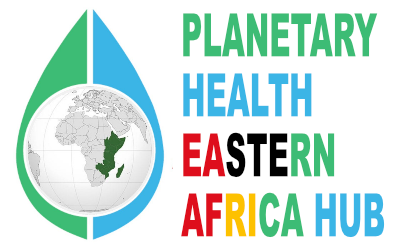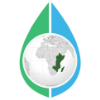The Planetary Health Eastern Africa Hub offers an opportunity to learn and share about planetary health and the planetary health emergency in Eastern Africa. We aim to stimulate regional community building, provide education for transformative action and push for strategic policy-making in the face of the greatest planetary health emergency of our time.
What are our activities?
The Hub’s activities will include the following:
- Hosting workshops, lectures and seminars with regional and international experts to build up knowledge on planetary health;
- Creating a platform for planetary health advocates from the Eastern African region;
- Raising public awareness of planetary health challenges;
- Developing educational curricula and learning resources for transformative action;
- Collaborating in research activities with other interested partners
- Cooperation with Indigenous communities
- Presenting the hub’s activities and projects on regional and international conferences (e.g. COP26, Planetary Health Annual Meeting, inVivo conference)
- And finally, supporting youth engagement and leadership with regard to planetary health.
Click here to get involved.
What is planetary health?
The climate and the biodiversity crisis are the current greatest threat to global health. As humans, we are inseparably linked to the planet’s natural systems and our life depends on their continued existence. The perturbation of these natural systems in the form of destruction of natural habitats – along with the increasing proximity of animals to humans due to loss of forest land – have made an estimated 800,000 still-unknown viruses an active risk to us. The current COVID-19 crisis is a powerful reminder of this and shows that we cannot ignore the unbreakable bonds between planetary and human health. The cost of ignorance is immense.
In the final report of The Rockefeller Foundation–Lancet Commission on Planetary Health, the concept of ‘planetary health’ is more explicitly defined as “the achievement of the highest attainable standard of health, wellbeing, and equity worldwide through judicious attention to the human systems—political, economic, and social—that shape the future of humanity and the Earth’s natural systems that define the safe environmental limits within which humanity can flourish.” Planetary health focuses, therefore, on the health of the human civilisation and the state of the natural systems upon which it depends. It offers a holistic approach to both people’s and their environment’s health, all while acting within the planet’s boundaries. Health professionals (along with their colleagues in a range of other disciplines) play a vital role in the prevention and communication of the effects of the planetary health emergency – it is therefore critical to ensure that climate change and planetary health are included in the education and training of all health professionals. The Planetary Health Hub in Eastern Africa, accordingly, aims to promote planetary health among students, trainees and professionals in the healthcare sector, along with all other interested parties.
Click here to learn more.
Eastern Africa: acting locally for a healthier planet
Eastern Africa’s response to environmental and health-related problems tends to be characterised by a slow pace and unclear policies – although this is, of course, not uniquely an African problem. Despite the quick response to the COVID-19 pandemic, the regional economy has been greatly affected. We are witnessing imbalances of both ecosystems and human health, including a loss of biodiversity, climate change, air and water pollution, insecure food systems and urban sprawl that is out of control. COVID-19 has, as we have all seen throughout the last few months, further highlighted the already long-standing crisis of inequality between communities in the Eastern African countries. It highlights the fact that we have to combat both the health and the economic crises that COVID-19 has caused, while also working on the huge number of other serious crises which continue to be caused by the transgression of planetary boundaries in Eastern Africa. This must be done before they worsen and engender further, irreparable damage.
Eastern Africa is also the home of the United Nations Environmental Programme, having some of the best biodiversity economy. These biodiversity resources can and should be combined with healthcare practices in a manner that it can be showcased to the rest of the world.

